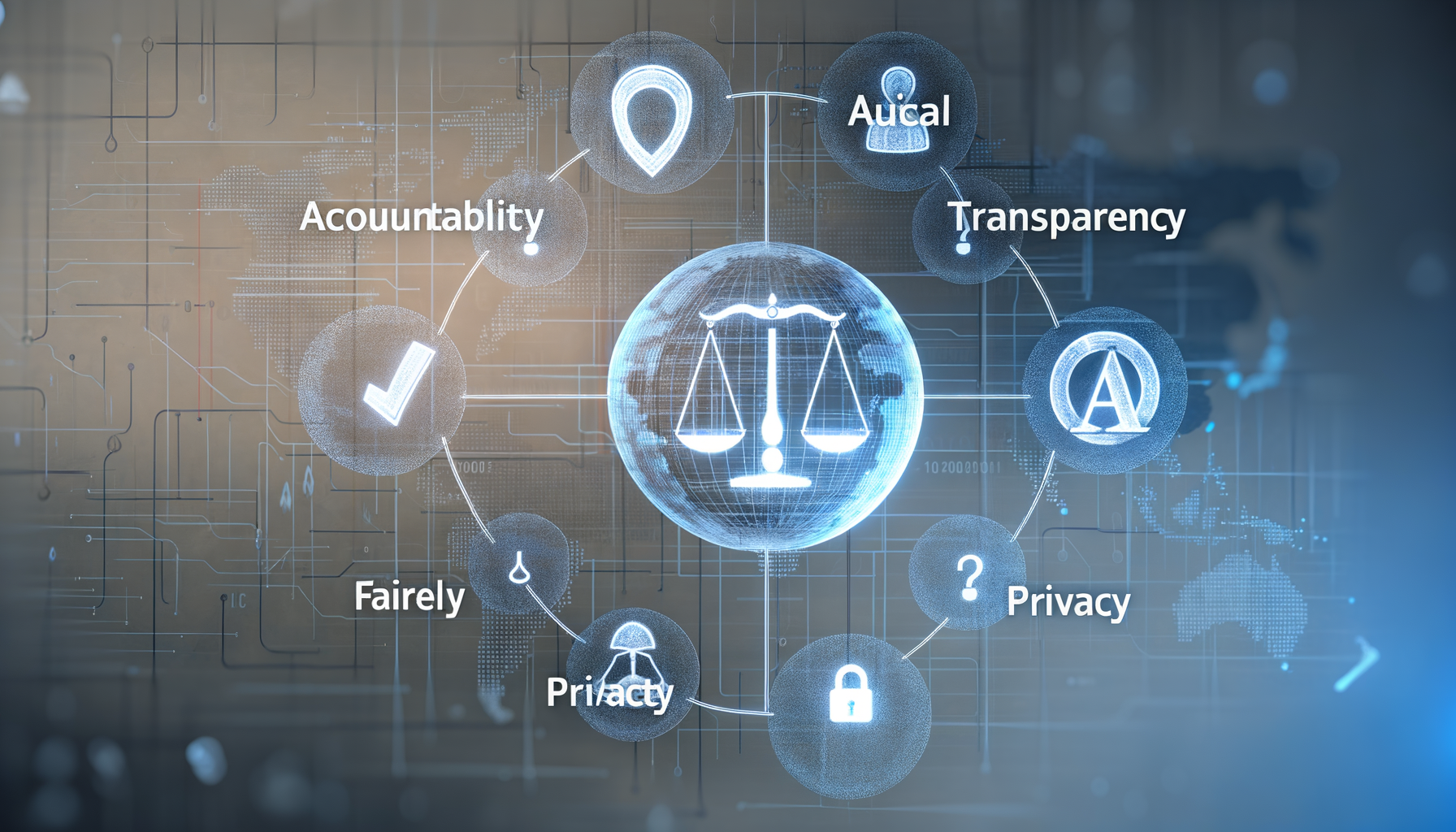Understanding AI Governance
Artificial Intelligence (AI) governance encompasses the policies and frameworks required to ensure AI systems are used responsibly, ethically, and safely. With the increasing prevalence of AI technology in various sectors, AI governance becomes crucial to address concerns related to privacy, fairness, and transparency.
Importance of Ethical AI Systems
AI has the power to significantly impact society; therefore, establishing ethical guidelines is essential to prevent misuse and to guarantee fairness and transparency. Implementing robust governance ensures that AI technologies improve human welfare while minimizing risks and harms.
Components of AI Governance
AI governance involves several core components, including accountability, transparency, fairness, and privacy. Each component contributes to a balanced framework ensuring that AI systems operate within ethical and legal boundaries. Ensuring transparency allows stakeholders to understand how AI decisions are made, while accountability holds organizations responsible for their AI systems.
Challenges in AI Governance
One major challenge in implementing AI governance is balancing innovation with regulation. Too much regulation might stifle innovation, while too little can lead to unethical AI practices. Additionally, the global nature of AI technology demands international cooperation to establish consistent governance standards.
Effective Strategies for AI Governance
To effectively govern AI, organizations can adopt strategies such as establishing clear policies, investing in AI ethics education, and engaging in continuous monitoring. These initiatives help in embedding ethical practices within AI development processes and ensuring compliance with regulations.
The Future of AI Governance
The future of AI governance lies in the development of adaptive policies that evolve alongside technological advancements. As AI technology continues to grow, governance frameworks will need to be flexible yet robust enough to address new ethical and legal challenges that emerge.
Conclusion
Overall, AI governance is critical for ensuring that AI technologies are deployed responsibly and ethically. By understanding and implementing effective AI governance practices, organizations can not only safeguard their interests but also contribute positively to society. Ethical AI systems help to foster trust and confidence among users, paving the way for a beneficial relationship between humans and AI technology.
View the original article here: https://konghq.com/blog/learning-center/what-is-ai-governance




